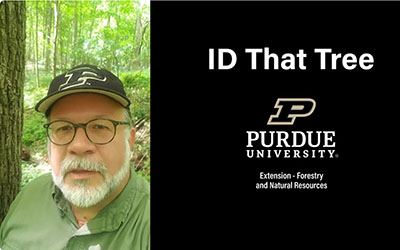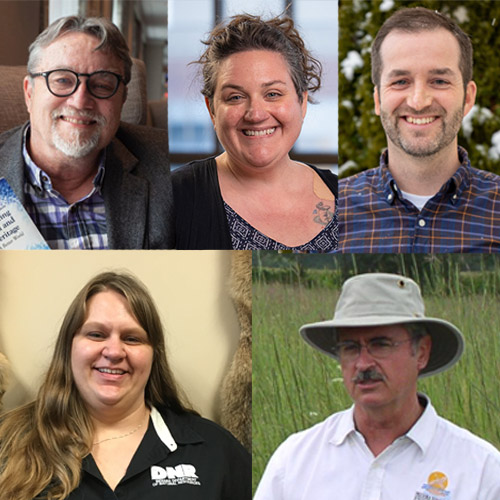Researchers Aim to Solve Conservation Program Participation Puzzle
How can conservation programs engage natural resource owners and managers to protect the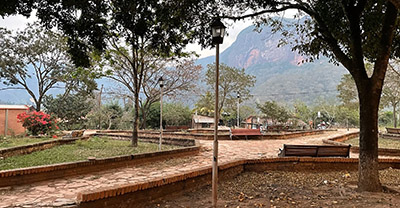 environment? Payments for Ecosystem Services (PES), an approach relying on conditional incentives (cash or in-kind) to encourage people to manage natural resources sustainably, have become the dominant strategy to promote environmental conservation worldwide. However, these efforts have been met with mixed results when it comes to participation, especially by vulnerable groups.
environment? Payments for Ecosystem Services (PES), an approach relying on conditional incentives (cash or in-kind) to encourage people to manage natural resources sustainably, have become the dominant strategy to promote environmental conservation worldwide. However, these efforts have been met with mixed results when it comes to participation, especially by vulnerable groups.
Drs. Jonathan Bauchet and Zhao Ma are studying the puzzle of participation in such programs, following their previous work in Bolivia that unexpectedly showed that removing conditionality in incentive-based programs did not affect either the average participate rate or the characteristics of the participants in conditional and unconditional versions of the program.
Under a new National Science Foundation grant, “Solving the Participation Puzzle: Understanding Mechanisms Behind Causal Effects of Randomized Controlled Trials in Conservation,” (Award #2242087) researchers look to better understand drivers of participation and mechanisms by which incentive-based conservation programs generate impacts. They will leverage theories from cultural anthropology, social psychology and economics and compare them to local households’ perceptions of the PES program and its impacts (or lack thereof).
“This research advances theoretical understanding of how cultural norms about trust, intrinsic motivation and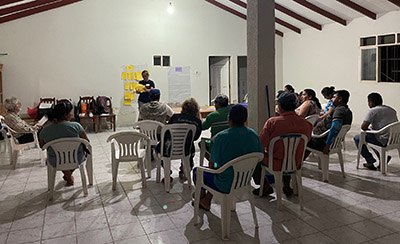 perceptions of fairness interact with material rewards to predict households’ environmental conservation decisions,” said Bauchet, associate professor in the Division of Consumer Science in the White Lodging – J.W. Marriott, Jr., School of Hospitality and Tourism Management and in the Department of Agricultural Economics. “It contributes to a growing body of literature on decolonizing environmental conservation by investigating reasons for participation in conservation programs beyond financial reasons.”
perceptions of fairness interact with material rewards to predict households’ environmental conservation decisions,” said Bauchet, associate professor in the Division of Consumer Science in the White Lodging – J.W. Marriott, Jr., School of Hospitality and Tourism Management and in the Department of Agricultural Economics. “It contributes to a growing body of literature on decolonizing environmental conservation by investigating reasons for participation in conservation programs beyond financial reasons.”
In addition to looking at the role of conditionality in driving participation and impacts, this research will be innovative in its use of ethnographic research methods in conjunction with a quantitative research-based randomized controlled trial. By revisiting the field and conducting ethnographic work after initial research results are known, researchers hope to solve puzzles associated with their initial findings. Lessons from this experience will be shared with the research community, notably through insights on how to create a post-analysis plan.
“Understanding who enrolls in these programs, why and how programs can be designed to broaden enrollment and be more inclusive holds promise to increasing total benefits to society and nature,” said Dr. Ma, professor of natural resource social science in the department of Forestry and Natural Resources. “When findings are unexpected or puzzling, we are also proposing that researchers return to the field to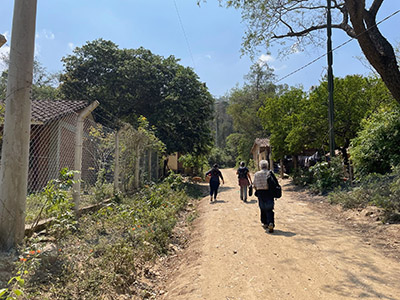 understand why their hypotheses were not confirmed, in order to inform new theories. This innovative approach has the potential to reduce the lack of reporting null or unexpected findings and thus enhance transparency in science.”
understand why their hypotheses were not confirmed, in order to inform new theories. This innovative approach has the potential to reduce the lack of reporting null or unexpected findings and thus enhance transparency in science.”
Findings from Bauchet and Ma’s initial most recent work in Bolivia can be found in the publication “Compliance under control: Insights from an incentive-based conservation program in rural Bolivia,” which was published in Ecological Economics in 2022. Other previous papers on their PES research include: Comparison of Direct Transfers for Human Capital Development and Environmental Conservation (World Development 2017) and The Practice of Payments for Ecosystem Services (PES) in the Tropical Andes: Evidence from Program Administrators (Ecosystem Services 2020).



